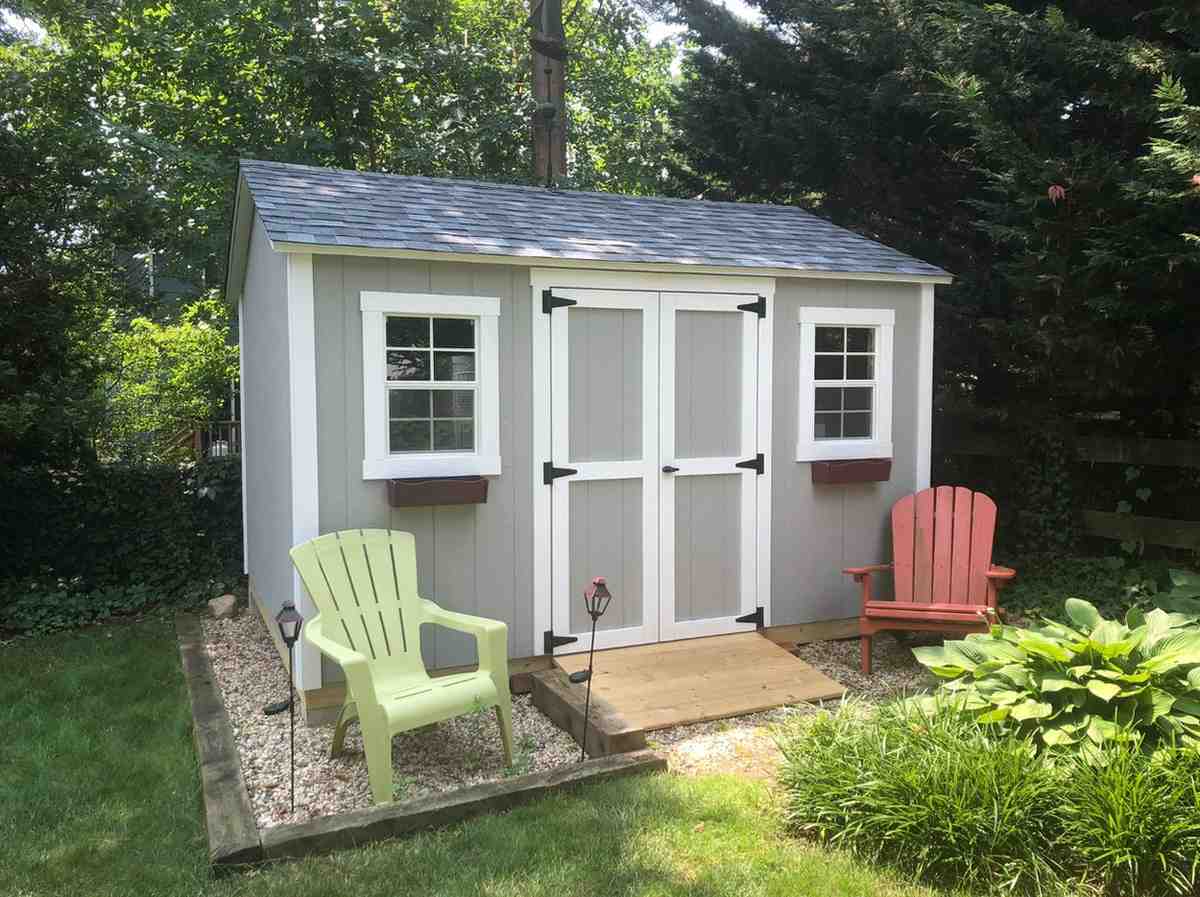What to Consider When Buying a Shed: A Practical Guide with 10 Tips
Copy Link

Whether you’re a seasoned gardener, a DIY enthusiast, a remote worker, or just someone looking to declutter the garage, a shed can be a game-changer. But with so many types, sizes, and features available, buying the right shed requires more than a quick browse online. Here are some tips on what to consider when buying a shed to make sure you get the best value for your investment.
1. Purpose: What Will You Use It For?
Before anything else, define the primary use of the shed.
Will it be for:
- Storing gardening tools and equipment?
- Housing bikes, lawnmowers, or seasonal decor?
- Serving as a workshop, hobby space, or home office?
Your intended use will dictate the size, materials, and even the location of your shed.ome.

Rustic wooden custom shed in garden
2. Size and Space
Measure the space available in your yard, and make sure you leave room around the shed for easy access and maintenance. Think long-term—what seems spacious now might feel cramped in a year or two if your storage needs grow.
Tips:
- Leave at least 1 foot of clearance around all sides.
- Check local regulations for maximum shed size without a permit. Check out our permits page for building department links and shed permit information in Ocala, Gainesville and Marion, Alachua, and Duval counties.
3. Material: Wood, Metal, or Plastic?
Each material has its pros and cons:
- Wood: Classic look, customizable, sturdy—but needs regular maintenance to prevent rot and pests. Brick City Buildings uses LP SmartSide engineered wood, designed to prevent rot and pests.
- Metal: Durable and often cheaper, but can be prone to rust and not as aesthetically pleasing.
Each of these ideas can be customized further with features like built-in furniture, solar panels, or rainwater collection systems.

Infographic showcasing a detailed breakdown of shed features from Brick City Buildings, including a weather-proof roof system, functional interior, treated siding, operable windows, extra-wide double doors, and a heavy-duty floor system.
4. Style and Aesthetics
A shed can complement your landscaping or stick out like a sore thumb. Match the shed style to your home’s exterior and garden vibe. Our 3D Design tool allows you to choose your style, color, and custom options.
5. Foundation and Flooring
A proper base is critical. A shed placed directly on the ground can suffer from moisture damage and instability.
Common options:
- Gravel base: Good drainage, affordable.
- Concrete slab: Long-lasting and sturdy.
- Pavers or deck blocks: A balance of convenience and durability.
- Brick City Buildings uses concrete blocks to ensure your shed is off the ground and level, and we secure it with Florida-approved hurricane anchors.
Our sheds come with built-in floors, but some don’t—so double-check!

Brick City Buildings uses high-quality materials, including LP SmartSide engineered wood that is rot and termite-resistant, treated floor joists, and concrete support blocks.
6. Security and Access
If you’re storing valuable tools or equipment, invest in a shed with lockable doors and secure hinges. Consider:
- Ramp access for wheeled equipment.
- Window placement for visibility and natural light (but beware of prying eyes).
- Double doors if you need to move large items in and out.
- Brick City Sheds come standard with wooden doors and locking t-handles, or you can upgrade to residential-grade doors.
7. Ventilation and Insulation
For storing paint, electronics, or using the shed as a workspace, ventilation is crucial to prevent mold and heat buildup. We offer three different sizes of aluminum-framed or insulated windows that all come with screens for extra ventilation. All of our buildings come standard with metal vents.
If you’ll be inside the shed often, consider insulation, electricity access, and even air conditioning and heating. Midea makes portable air conditioners with optional heaters that work great for controlling the temperature in your shed.
8. Local Rules and Regulations
Before you buy, check with your local municipality or HOA:
We’ll work with you to design a custom building that meets the size, height, and color requirements of your HOA.
- Do you need a permit?
- Are there height or setback restrictions?
- Any design or material requirements?
- We’ll work with you to design a custom building that meets the size, height, and color requirements of your HOA.
9. Assembly and Maintenance
Are you planning to build it yourself, have it delivered pre-assembled, or have it built on site?
DIY kits can save money but require time, tools, and at least two people for setup. Also, factor in how much maintenance the shed will need over time—wood requires more upkeep than metal or plastic.
If you’re having it delivered pre-assembled, you may need to take some of your fence panels down if your gate isn’t wide enough. Gates must be at least two feet wider than the shed for it to fit through.
10. Budget and Long-Term Value
Sheds can range from a few hundred dollars to several thousand. Balance initial cost with durability and functionality. Sometimes spending a little more upfront can save you money on repairs, replacements, or upgrades later.
- We offer rent-to-own options that can fit just about any budget with only one month down and no credit check. Visit our Rent To Own page to learn more.
Final Thoughts
Buying a shed isn’t just about storage—it’s about enhancing your outdoor lifestyle. Whether you’re organizing, creating, or simply freeing up space, the right shed can make a big difference. Take your time, do your homework, and choose a shed that’ll serve you well for years to come.
Feel free to contact us with any questions you may have. We’re here to help you! If you’re relocating to Ocala, Florida, give us a call. We’ll build the perfect shed for your backyard storage needs!

